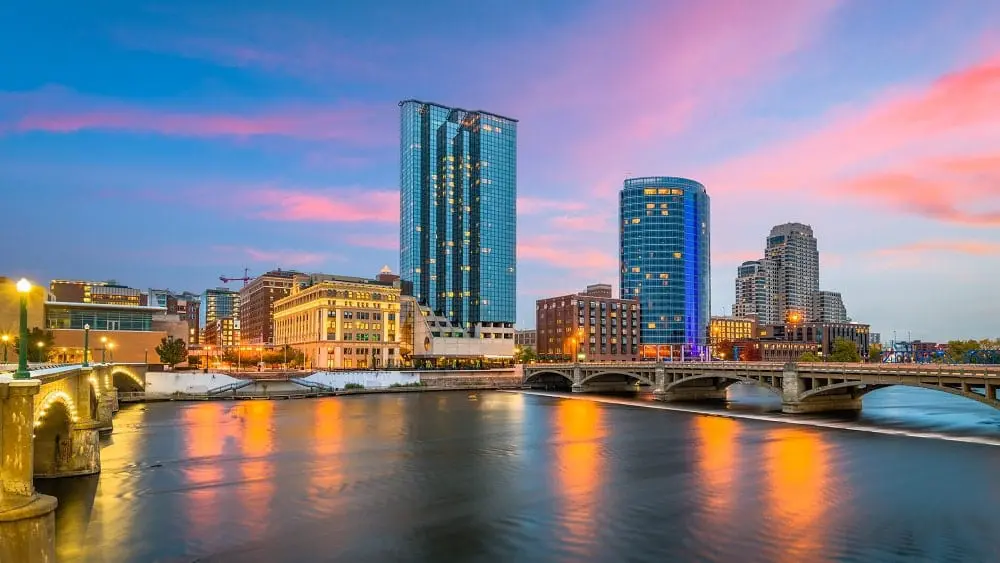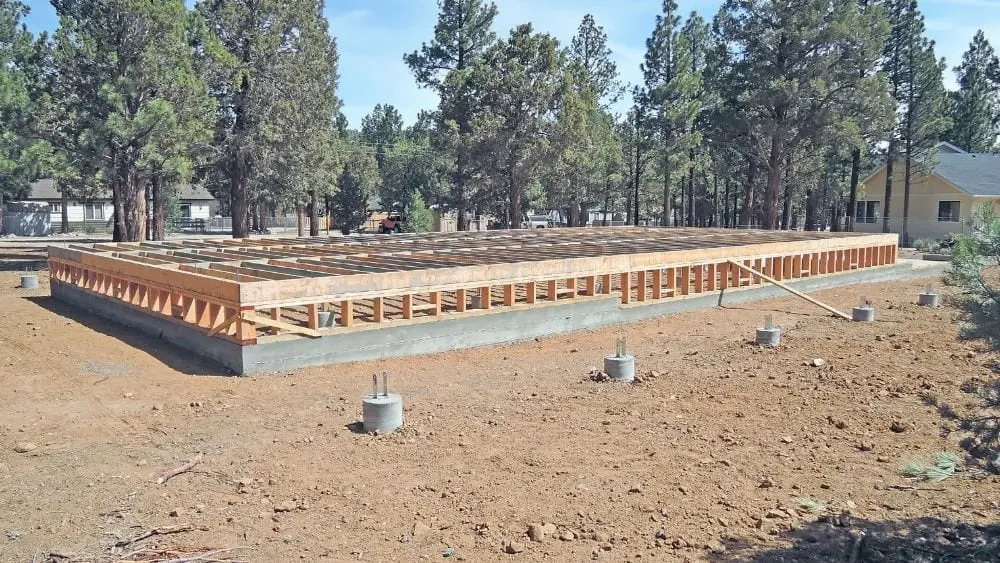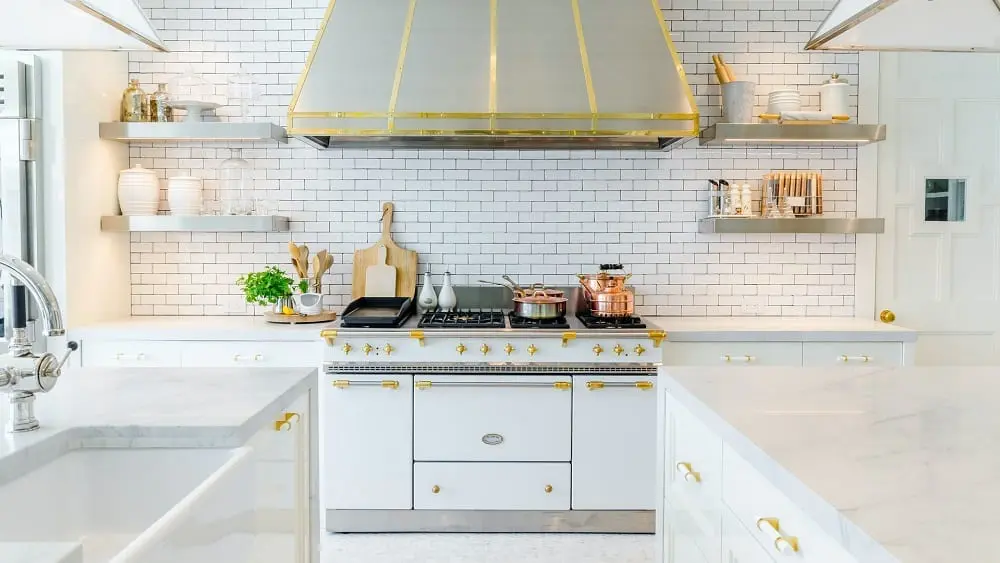
When it comes to building a new home in Michigan, you should first do some research to learn more about the building process and the costs involved. Too often, eager homebuyers are quick to consider just the costs of land and construction. In the process, they may miss some of the key steps in the process or larger expenses that sometimes show up as hidden fees, such as permits and installation costs.
According to HomeAdvisor, the average cost to build a new home in Michigan is between $225,000 and $265,000. These figures offer an estimate, and your overall cost will vary by location, materials and labor costs and personal preferences.
If you’re considering building a home in Michigan, here is a breakdown of what you should expect throughout the process.
Climate Considerations
Mostly due to the state’s proximity to the Great Lakes, Michigan typically offers cool, breezy summers and icy winters. Waterfront breezes cool the land in the summer and may add moisture to the air. Residents should expect long, frigid winters with a lot of snow and ice. If snowboarding and skiing are your thing, then Michigan is the perfect place to call home.
Because of the range of climates, you should make sure when building your home that you weatherproof it for the moist air of summer and the ice storms of winter. Weather strips, extra insulation in the walls and around the plumbing, and a quality HVAC system are necessary for ensuring a safe and healthy Michigan home during all seasons.
Construction Timeline

In Michigan, the building opportunity depends on the season. If several feet of snow are on the ground, the building process may be delayed. It is often best to plan for spring to begin new construction. In any case, a standard 2,000-square-foot home in Michigan may take about six months to complete from breaking ground to finishing touches.
Here are the key steps to expect when building a new home in Michigan.
Buy Land
In Michigan, the cost of land varies quite a bit by location within the state. The value of land per acre averages about $23,765 but may include an extensive price range from rural farmland to urban metropolis.
Permits and Paperwork
You will need to obtain several important permits to build a new home before the project can break ground. Failure to secure these permits may result in delays to construction and an increased bill but also could lead to fines and other consequences. Your builder or contractor will most likely take care of the permits for you, but it is best to always ask questions and make sure that the appropriate paperwork is filed on time.
In Michigan, the required permits include a building permit ($1,000–$2,000), electrical permit (up to $500), mechanical permit (up to $100) and plumbing permit (up to $500). Additionally, some large appliances will also require a permit. These include an HVAC permit ($250–$400), fireplace permit (up to $70), water heater permit ($50) and a pool heater permit, if required ($10–$20).
Other permits may be necessary based on additions to your home design. Be sure to discuss any required permits with your builder or contractor and reach out to city or county government officials if you have questions about permits or how to obtain them.
Site Prep
Preparing a lot to build a home in a rural area or a new development in the suburbs can cost quite a bit. Any leveling or excavation will be crucial before laying your foundation, and prepping the terrain does not come cheap. According to HomeAdvisor, clearing and preparing the land may cost between $1,500 and $5,000 on average.
Additionally, you will need to connect your property to city water lines, electricity and other necessary resources. In Michigan, connecting your home to the city water system may cost between $8,000 and $13,450, depending on your location and the size of your lot.
Foundation

If you decide to go with a typical slab, a concrete foundation installed in Michigan typically costs between $4 and $7 per square foot. A reinforced slab on a grade foundation will cost a little more. Slab foundations are typically on the lower end of expenses, so if you are planning on a basement or crawlspace foundation, the cost will be considerably higher.
Framing
Aside from the finishing features, the framing of the house typically incurs the highest cost. The materials on their own can cost between $3 and $6 per square foot before including labor expenses. Various parts of the project may differ in cost, such as basement framing ($5 per square foot) and garage framing ($4–$5 per square foot).
Roof
The roof is another large expense. In Michigan, installation of a roof typically ranges from $6,550 to $11,900. This also varies based on materials, such as composite shingles, metal or slate roofing on the higher end (which may cost up to $45,000).
Labor
If you are not planning on rolling up your sleeves and producing your home with your two bare hands and a lot of elbow grease, you will need to hire a team of professionals. In Michigan, you can expect to pay between $16 and $18 an hour for construction labor.
If you have little to no expertise in overseeing a large-scale construction project, you’ll want to hire a project manager or general contractor. Depending on your location and the business, you should expect to pay this professional between $50 and $75 per hour to manage the project. A general contractor may prefer to be paid in installments as the project progresses toward completion.
In the design phase, you may want to hire an architect to develop the look of the house. A Michigan-based architect may charge between $50 and $150 per hour. Other sources of labor such as engineers, soil testers, electricians and plumbers add to the budget as well.
Major Systems

After framing is complete, your home’s major systems can be installed. This may include electricity, water and drainage, drywall, and central heating and air systems. Once your home is connected to the city’s water line, installing pipes may cost $450 to $1,000 per fixture, such as a toilet or sink.
In Michigan, drywall installation typically costs between $1.45 and $1.57 per square foot for materials, with an average of $1.51 per square foot. You should expect labor for drywall installation to cost between $30 and $60 per hour, with an average of $45 per hour.
The cost to install your HVAC system ranges between $4,500 and $16,000, depending on the size of the home. On average, Michigan residents invest $7,000 for an HVAC system. A new furnace or ductwork may cost from $4,500 to $9,000, with the average homeowner spending about $6,500.
Finishing Features and Appliance Installation
Next, it’s time to start personalizing your new space by choosing cabinetry and countertops, flooring, windows, lighting and more. This is the time to get creative and add your own flavor to the mix.
Interior home finishings can run anywhere from $50,000 to $175,000 or more, and often include everything that makes your new house feel like a home. Interior painting, light fixtures and household appliances add up quickly, so make sure you plan ahead and stick to your budget. You can expect to spend between $3,000 and $15,000 on brand-new appliances.
Exterior home finishings may include window and door installation ($3,000–$9,000), exterior wall painting ($1,800–$4,400) and pavement or landscape design.
Helpful Tips for Building in Michigan

Finally, here are a few tips and tricks for building your dream Michigan home.
Financing
These numbers may feel overwhelming at first glance. However, Michigan offers two different types of financing for your new home construction. One-time-close construction loans offer the reassurance of one-time approval for a fixed-rate mortgage, allowing you to lock in an interest rate before breaking ground on construction.
Two-time-close construction loans, also referred to as “construction-to-permanent loans,” offer more flexibility over the construction period. Homeowners will start with a construction loan that may be distributed in smaller amounts gradually during phases of the building process, then eventually the full amount can be refinanced into a permanent mortgage upon completion of the project.
Closing Cost Incentives
Almost every state or region offers homebuying incentives for first-time and repeat buyers. These are usually in the form of financial assistance to aid in closing costs or lower interest rates. Make sure to research Michigan homebuyer assistance programs for more information that could save you a chunk of change in the long term.
Build Your Michigan Home
From purchasing land to painting the front door, hopefully these steps will provide an outline for building your new dream home in Michigan. With a little bit of research, many discussions with your contractor and hopefully a lot of excitement, you’ll find any stresses about the overall construction melting away, adding a simple ease to the process that will welcome you home.

Melanie Theriault is a writer, counselor, and lifelong learner. She holds a B.A. in Sociology from Southwestern University, where she discovered her passion for fostering human connection through storytelling.
 The Top 10 Most Affordable Cities in South Carolina
The Top 10 Most Affordable Cities in South Carolina